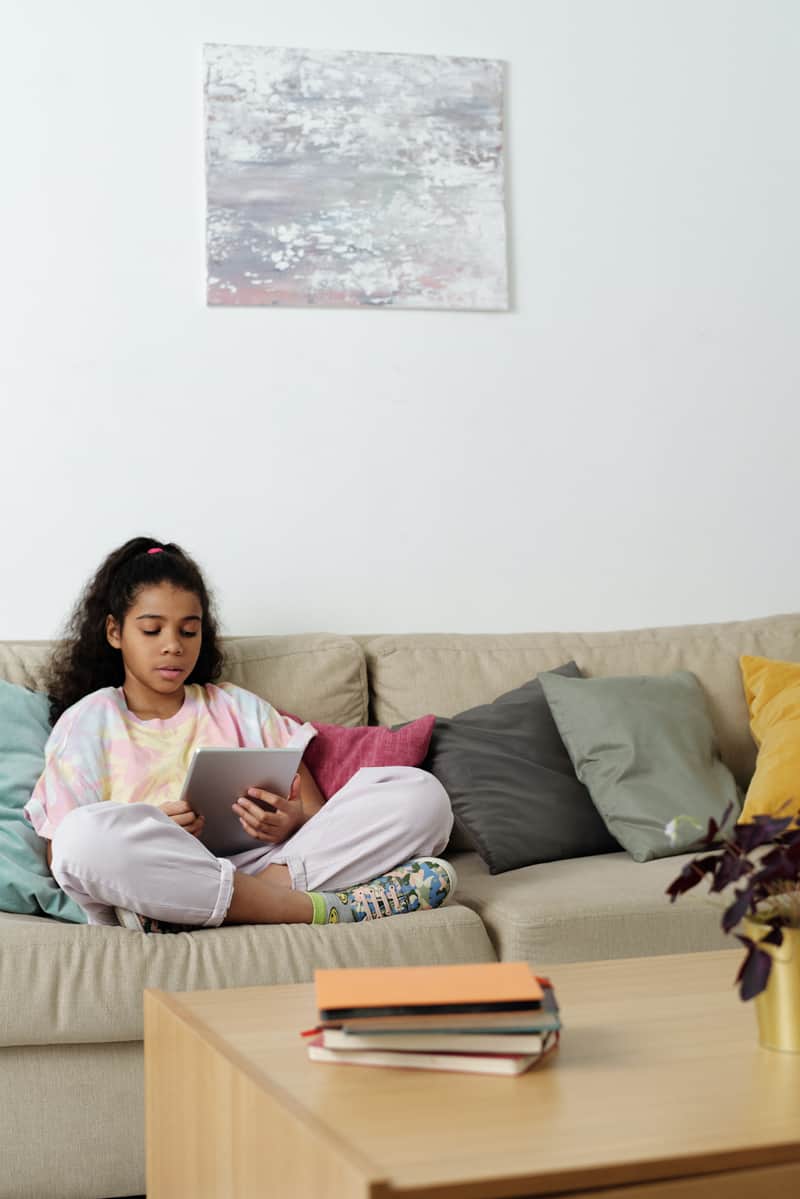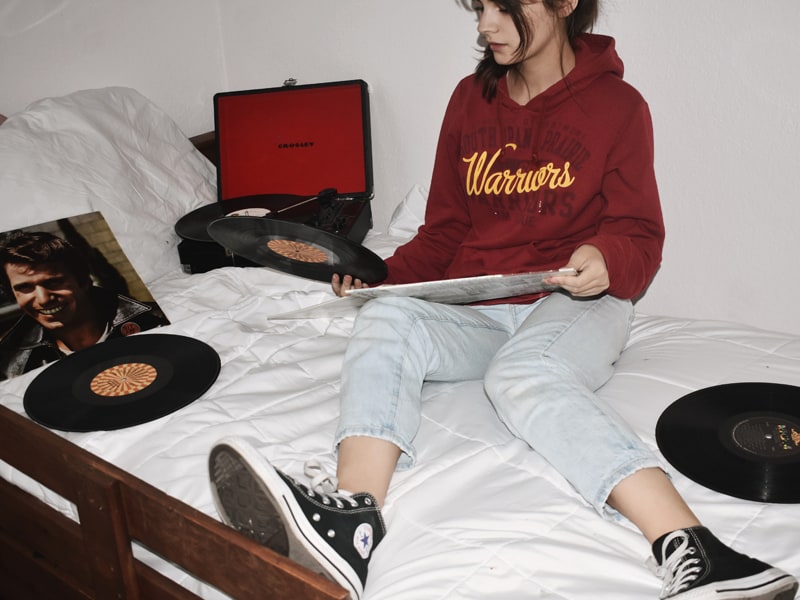We’re all looking for ways to engage the kids in non-screen activities, especially right now when screens often feel like the only option. There has to be a reason why we’re fighting with the kids about screens all. the. time, right? Georgina Manning, Counsellor, Psychotherapist and Director of Wellbeing For Kids tells us why it’s so important that we keep finding them other things to do.
Busy parents often find the work–life balance difficult to master, with the urge to plug in and tune out ever tempting. Under the current climate, this has only amplified – particularly for mums with teens. Among the endless list of responsibilities, we’re already juggling, COVID-19 has successfully doubled the load. Sometimes, technology seems like the only option we have to keep our kids entertained.

With remote learning now in full swing, Australians’ internet consumption and screen time is at an all-time high. In fact, it’s increased more than 70% since February 2020. While remote learning can be tricky to navigate, encouraging your child to engage in non-screen activities in their free time will not only improve their skills, it can also bring your family closer.
Try some of these ideas: 100 fun, quirky, important ways to bond with your teen
Which is why non-screen activities like Pictionary and Scrabble have announced a new rule change. All players must now put their smartphones into the empty game box lid at the start of every game. The new rule aims to eliminate any distractions – and potential cheating! – promising a fun night in with your family.
Taking the time for tech-free activities is one of the best things we can do for our children. Playing freely allows the mind a moment to stop and rest and to nourish the brain and body. Non-screen gameplay also has a huge range of cognitive and emotional benefits.
Educational development
Regular non-screen activities has a powerful impact on cognitive skills and memory. It also helps open the lines of communication, creating lasting positive family memories.
Games like Scrabble can also help with a child’s vocabulary. Pictionary will help improve fine motor skills while stimulating creativity and self-expression. Board games keep the entire family entertained with some (healthy!) competition and help children keep their brain active, building on their problem-solving and communication skills.

Plenty more non-screen activities here: 100+ engaging, non-cringe things for teens to do at home
Emotional intelligence
Setting time aside for non-screen activities – and ultimately, face-to-face communication – is important for relationship building and fostering interpersonal skills for all ages.
New circumstances, particularly the one we’re in currently, can bring up feelings of worry. A shared task is a great opportunity to open up conversations with our kids. During these conversations, we are able to validate the kids’ concerns and emotions. Often, just listening is enough to put them at ease while learning the importance of communication for years to come.
Time for mindfulness
Disconnecting from tech when playing board games will help drive mindfulness and wellbeing. It brings people together to enjoy the present moment with our loved ones.
It’s so important: Why mindfulness for kids is more than just a buzzword
Often we find ourselves caught up in the online world, losing touch with the physical world and those around us. This is no different for children. It’s important they understand and distinguish between the two realities and remain mindful to ease any anxiety.
Now more than ever before, it is critical we find ways to connect. We need to set positive examples for our children to follow. Devices can’t always be off the cards, but we need to take regular breaks from screens. Use this time to connect together and be fully engaged in appreciating each other’s company.
And, of course, let’s have lots of fun introducing routines our kids can continue to enjoy.
Georgina Manning is a registered Counsellor, Psychotherapist and Director of Wellbeing for Kids. As a national wellbeing speaker with over two decades of experience working in schools supporting children and parents through seminars and professional development days, Georgina prides herself on reaching effective social and emotional outcomes for both parents and children. Continuing her passion for children’s wellbeing, Georgina created the ‘Peaceful Kids’ and ‘Peaceful Parents’ Mindfulness and Positive Psychology programs, holding training across many states in Australia. For more information on Mattel’s new rule, you can visit Scrabble or Pictionary on Facebook.
Feature image by Suzy Hazelwood; screen time by Julie M Cameron; records by Sofia Garza


Erin
Thursday 8th of October 2020
Hear, hear, 100% agree. So wish the 'powers that be' lived this during the height of online learning and covid